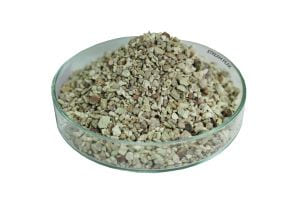Activated Clay
Activated clay, also known as bentonite clay, is a natural mineral desiccant that absorbs moisture effectively, up to 25% of its weight. The moisture absorber is safe, odourless, non-corrosive, and non-toxic.
Effective Humidity Control
Ideal for moisture-sensitive products like electronics, pharmaceuticals, and food, montmorillonite clay desiccants find application in packaging. The natural clay moisture absorber is available in desiccant packets for packaging or shipping containers, shielding contents from moisture during storage and transportation.
Processed through heating and chemical treatment, it develops a porous structure with ample surface area and small pores. This structure enables the porous clay desiccant to adsorb moisture from the air, controlling humidity and eliminating problems such as corrosion, mould growth, and product deterioration.
When exposed to temperatures above 50°C, the bentonite clay desiccant releases the absorbed moisture into the environment, allowing for reusability. They can ensure the integrity and quality of sensitive products like electronics, pharmaceuticals, and food items.
Natural Moisture Absorption
We offer a range of customisation options in terms of size and specifications for tailored packaging solutions. Maintaining high standards, our in-house QA laboratory conducts daily quality checks conforming to ISO 9001 and 14000 standards. This ensures that the clay desiccant consistently meets expectations, providing optimal moisture protection.
- Absorbs up to 25% of its weight in moisture
- Odourless and non-corrosive compared to other desiccants
- Processed for a large surface area and small pores for optimal moisture adsorption
- Releases absorbed moisture above 50°C for cost-effective reuse
- Ideal for electronics, pharmaceuticals, food, and more
- Tailored packaging solutions to meet specific needs
- Daily testing to maintain ISO 9001 and 14000 standards
- Contributes to reduced environmental impact
- Prevents corrosion, mould growth, and product degradation
- Shields contents during storage and transportation
- Absorption capacity: 14-18% (by weight) at 25°C and 80% relative humidity.
- Particle size: 2-5 mm for granular forms and 0.5-1.5 mm for powdered forms.
- Activation level: Typically activated by acid or heat treatment to achieve a surface area of 200-300 square meters per gram and a pore volume of 0.3-0.5 cubic centimetres per gram.
- Packaging: Available in various sizes and forms, including packets, bags, canisters, and bulk containers. Packaging materials can include Tyvek, non-woven fabrics, and laminates.
- Shelf life: Typically has a shelf life of 2-3 years if stored properly in a dry environment.
- pH level: Typically neutral to slightly acidic (6-7.5).
- Bulk density: 0.65-0.85 grams per cubic centimetre for granular forms and 0.45-0.65 grams per cubic centimetre for powdered forms.
- Moisture content: less than 2% by weight.
- Temperature resistance: Withstand temperatures up to 100°C without losing its adsorption capacity.
- Humidity resistance: Maintain its adsorption capacity in humid conditions of up to 90% relative humidity.
- Toxicity: Non-toxic and safe for use in food and pharmaceutical applications.
- Environmental considerations: Can typically be disposed of in regular waste or recycled and are not known to cause environmental harm.
Activated Clay Product Brochure: Download


